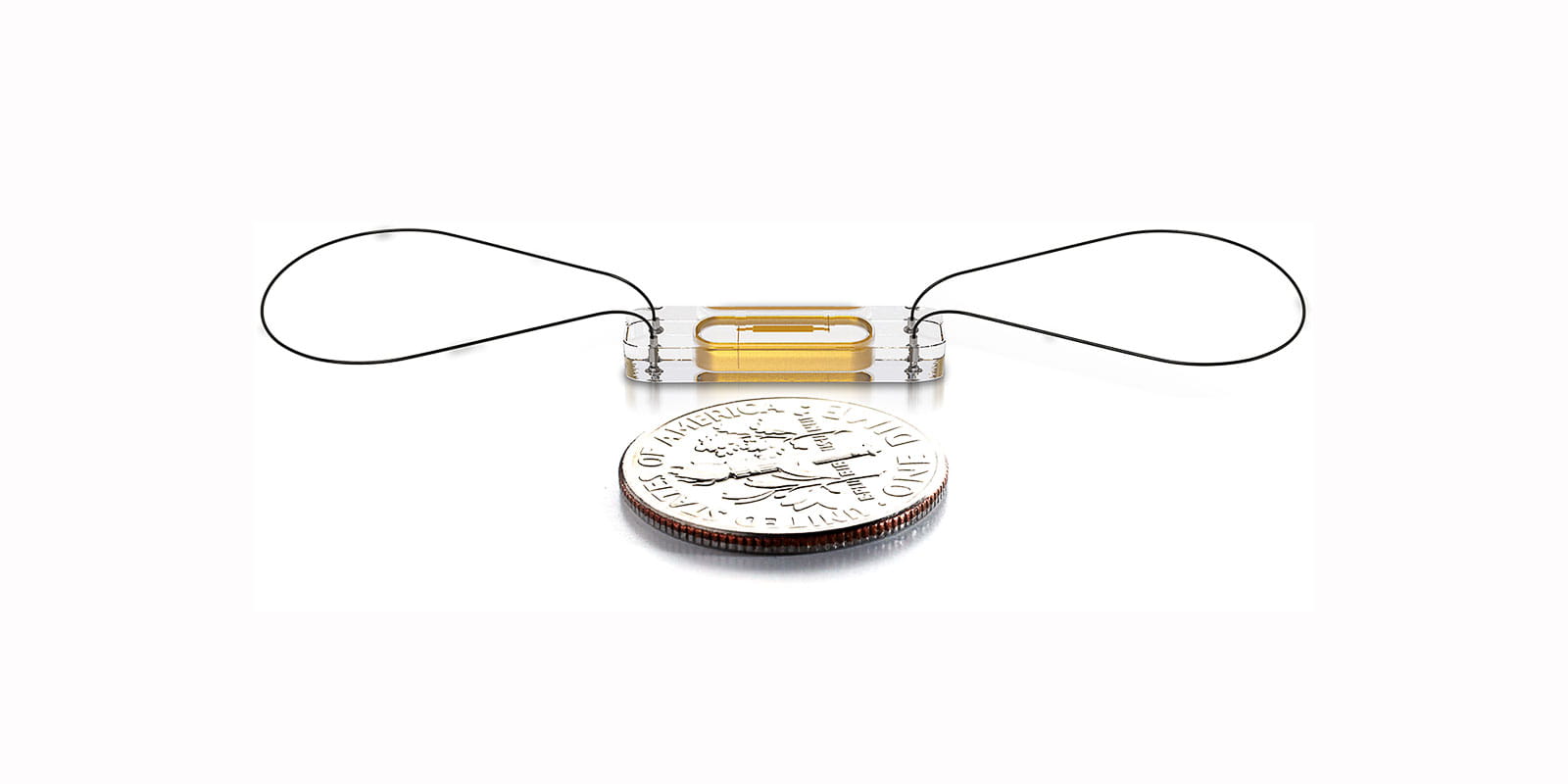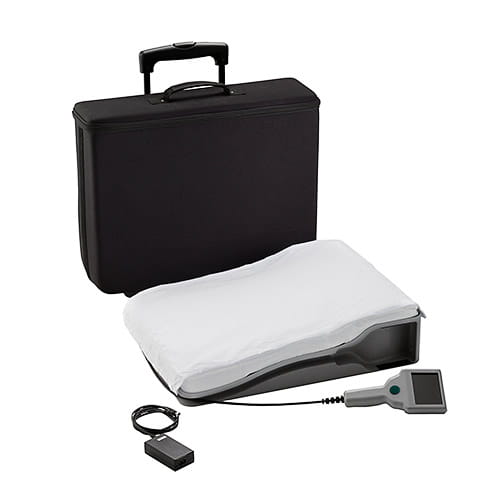
Implantable Sensor Improves Quality of Life for Heart Failure Patients
CardioMEMS transmits vital health information from patient to care team
Complications from heart failure can repeatedly send patients back to the hospital. However, tracking pulmonary artery pressures is a proven way to get ahead of heart failure before it progresses, allowing patients to stay out of the hospital and live more fulfilling lives.
To find out if CardioMEMS is appropriate for you, call 216-844-3800 to schedule a consultation with a UH heart failure specialist.
CardioMEMS is a miniature, wireless sensor, implanted into the patient’s pulmonary artery. It monitors pulmonary artery pressures.

The patient lies on a special pillow for a short time each day. The pillow gathers information from the pulmonary artery sensor and transmits the data directly to the UH Harrington Heart & Vascular Institute heart failure team. The information allows the team to make dosage adjustments to the diuretics and other medications the patient is taking at the earliest signs of pulmonary artery pressure abnormalities. Making medication and diet changes before a patient begins to feel bad helps keep them from being readmitted to the hospital.
The heart failure specialists at UH Cleveland Medical Center were early adopters of CardioMEMS. Since the program’s inception in 2015, UH has served as a national training site for other caregivers. The UH heart failure team currently manages more than 100 heart failure patients with this technology. Moreover, UH has seen impressive results – with a 70 percent reduction in heart failure readmissions for those patients being followed with CardioMEMS.


